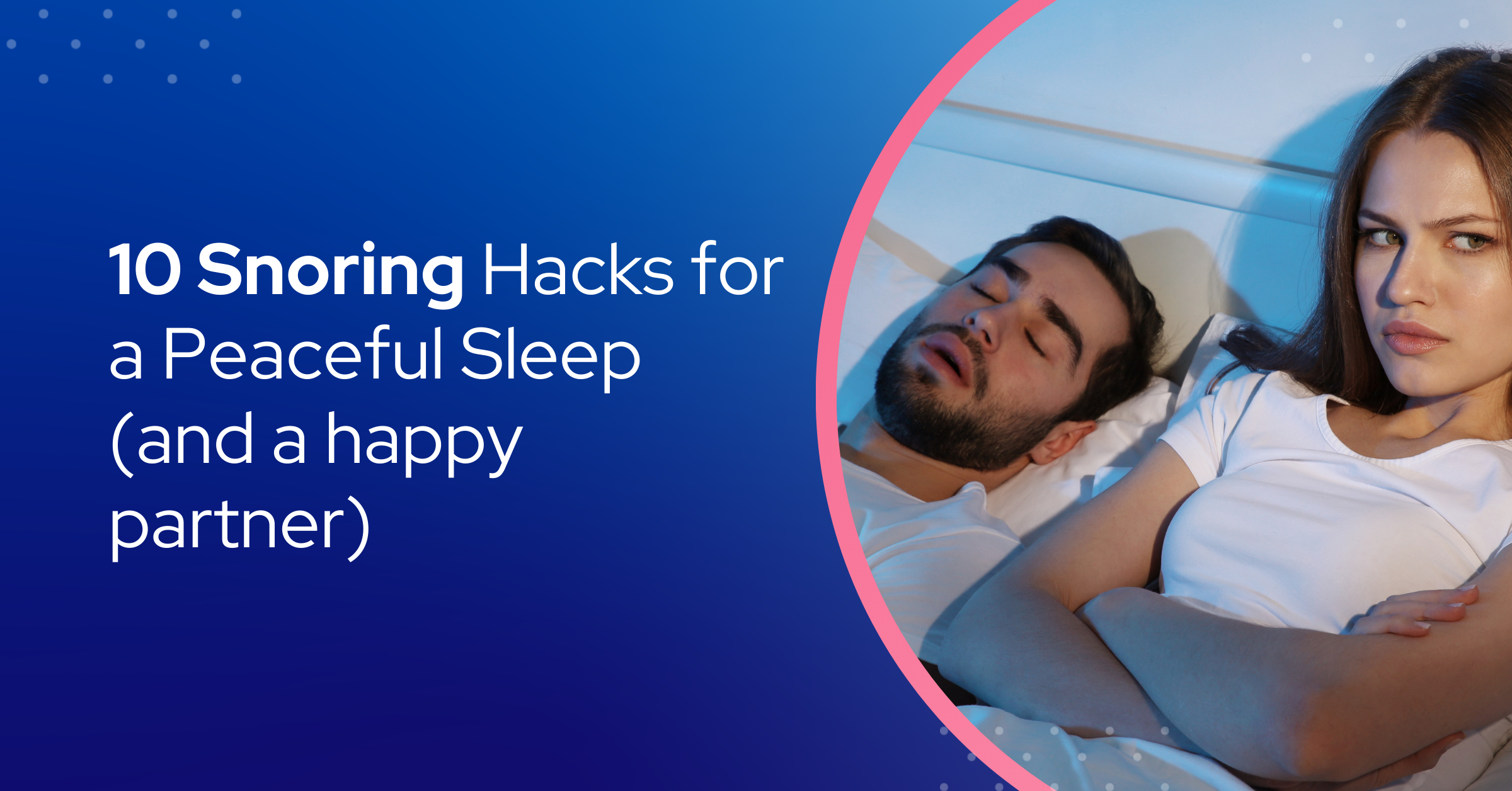Do you wake up feeling unrested, even after a full night's sleep? Does your partner nudge you throughout the night, complaining about a symphony of snores? Snoring disrupts sleep not just for the snorer, but also for their partner. Let's delve into the causes and solutions to create a quieter, more restful sleep environment for everyone.
Understanding Snoring: Causes and Health Concerns
Snoring occurs when the tissues in your throat vibrate as you breathe during sleep. This vibration can be caused by a variety of factors, including allergies, nasal congestion, enlarged tonsils, improper oral rest posture, and even certain medications. While occasional snoring can be normal, persistent snoring can be a sign of an underlying health condition called sleep apnea. In sleep apnea, breathing repeatedly stops and starts throughout the night, leading to daytime fatigue and other health risks.
The Domino Effect of Snoring: Sleepless Nights and Strained Relationships
The constant sound of snoring can significantly impact your partner's sleep quality. This sleep deprivation can lead to irritability, difficulty concentrating, and even health problems. For the snorer, fragmented sleep due to snoring can also affect daytime alertness and overall well-being. Chronic snoring can put a strain on any relationship, so addressing the issue becomes crucial.
Silence the Snore: 10 Actionable Hacks for a Peaceful Night's Sleep
Here's the good news: snoring can often be reduced or eliminated with some simple lifestyle changes and natural remedies.
- Strengthen Your Airway: Tongue exercises can help tone and strengthen the muscles in your upper airway, reducing vibration and snoring. Unlike temporary fixes, tongue exercises address the underlying cause of snoring by improving muscle tone and stability in the airway. This can lead to long-term reduction in snoring and may be a more sustainable solution than other approaches. Consider using a tool like Spot Pal to assist with these exercises.
- Clear Your Nasal Passages: Allergies and congestion can narrow your nasal passages, worsening snoring. Try using a humidifier or over-the-counter nasal decongestants (consult your doctor for appropriate use).
- Side is the New Back: Sleeping on your back allows your tongue to fall back and obstruct your airway. Train yourself to sleep on your side using a special pillow or sew a tennis ball into the back of your pajamas.
- Embrace the Nasal Strip: These drug-free strips gently open your nasal passages, promoting better airflow and reducing snoring.
- Stay Hydrated: Dehydration can thicken mucus in the nose and throat, worsening snoring. Drink plenty of water throughout the day.
- Elevate Your Head: Prop your head up slightly with extra pillows or a bed wedge to improve airflow and reduce snoring.
- Quit Smoking: Smoking irritates the airways and contributes to snoring. Quitting smoking offers numerous health benefits, including a quieter sleep.
- Manage Your Weight: Extra weight can contribute to tissue build-up in the throat, worsening snoring. Aim for healthy weight management through diet and exercise.
- Ditch the Nightcap: Alcohol relaxes the muscles in the throat, increasing the likelihood of snoring. Avoid alcohol, especially close to bedtime.
- See a Doctor: If snoring persists despite lifestyle changes, consult your doctor. They can rule out underlying health conditions like sleep apnea and recommend further treatment options.
Remember, a good night's sleep is vital for both your health and your relationship. By implementing these tips and working together, you can turn those restless nights into peaceful symphonies of slumber.

Share:
How Sleep Affects Your Performance On The Field
Finding Relief: Natural Remedies for TMJ Pain and Jaw Discomfort